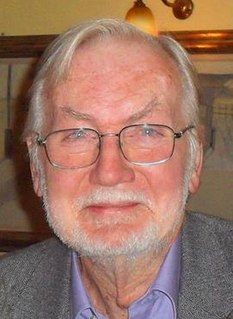Цитата Барри Ансуорта
Писатели исторической фантастики не обязаны, как историки, находить доказательства своих утверждений. Для нас достаточно, если то, что мы говорим, нельзя опровергнуть или показать, что оно ложно.
Связанные цитаты
У нас, писателей, и особенно у писателей для детей, но у всех писателей, есть обязательство перед нашими читателями: это обязательство писать правду, особенно важно, когда мы создаем рассказы о людях, которых нет в местах, которых никогда не было, — понять, что истина не в том, что происходит, а в том, что это говорит нам о том, кто мы есть. В конце концов, вымысел — это ложь, которая говорит правду.
Историки, берущиеся за вымысел, сейчас в моде. С тех пор, как в 2006 году Элисон Вейр проложила путь, постоянно растущее число авторитетных писателей научной литературы, включая Джайлза Милтона, Саймона Себага Монтефиоре, Гарри Сайдботтома, Патрика Бишопа, Яна Мортимера и меня, написали исторические романы.
Писатели исторической фантастики часто сталкиваются с проблемой: если они включают реальных людей, как они гарантируют, что их воображаемый мир не затмевается правдой? Вопрос стал очень важным, когда я начал читать «Черную башню», третье исследование Луи Баярда в области исторической фантастики и пятый роман в целом.
То, что историки должны дать своей стране передышку, я согласен с вами; но не так, чтобы констатировать вещи, противоречащие действительности. Ибо есть много ошибок, сделанных писателями по невежеству, которых трудно избежать всякому человеку. Но если мы сознательно пишем неправду, будь то ради нашей страны или наших друзей или просто для того, чтобы нравиться, какая разница между нами и халтурщиками? Читатели должны быть очень внимательны и критически настроены по отношению к историкам, а они, в свою очередь, должны быть постоянно начеку.
То, чем зарабатывают на жизнь писатели фэнтези, научной фантастики и большей части исторической фантастики, отличается от того, что делают писатели так называемой литературной или другой фантастики. Суть игры в F/SF/HF заключается в создании вымышленных миров, а затем в рассказывании конкретных историй, происходящих в этих мирах. Если вы все делаете правильно, то читатель, подойдя к концу истории, скажет: «Эй, подождите минутку, в этой вселенной можно рассказать еще столько историй!» И вот как мы получаем растянутые, связные вымышленные вселенные, о которых идет речь в фэндоме.
Единственный этический принцип, который сделал науку возможной, состоит в том, что истина должна говориться всегда. Если мы не будем наказывать за ложные заявления, сделанные по ошибке, мы открываем путь для ложных заявлений по намерению. И ложная констатация факта, сделанная намеренно, является самым серьезным преступлением, которое может совершить ученый.
Если бы кто-то заявил, что оккупационные силы США в Ираке были обеспечены Пентагоном «ключами к небу», потребовалось бы для опровержения это историческое исследование или вы просто сказали бы: «Это просто пропаганда»? Действительно, как можно опровергнуть утверждение о том, что у солдат США есть такие ключи? Или почему вы должны опровергать такие нелепые заявления? Доказательства должны предоставить обвинители.
Эта общая тенденция к устранению с помощью неподдающихся проверке спекуляций ограничений категорий, представленных нам природой, является наследием биологии из «Происхождения видов». Чтобы установить преемственность, требуемую теорией, прибегают к историческим аргументам, хотя исторических свидетельств не хватает. Так рождаются те хрупкие башни гипотезы, основанной на гипотезе, где факт и вымысел смешиваются в неразрешимой путанице.





































